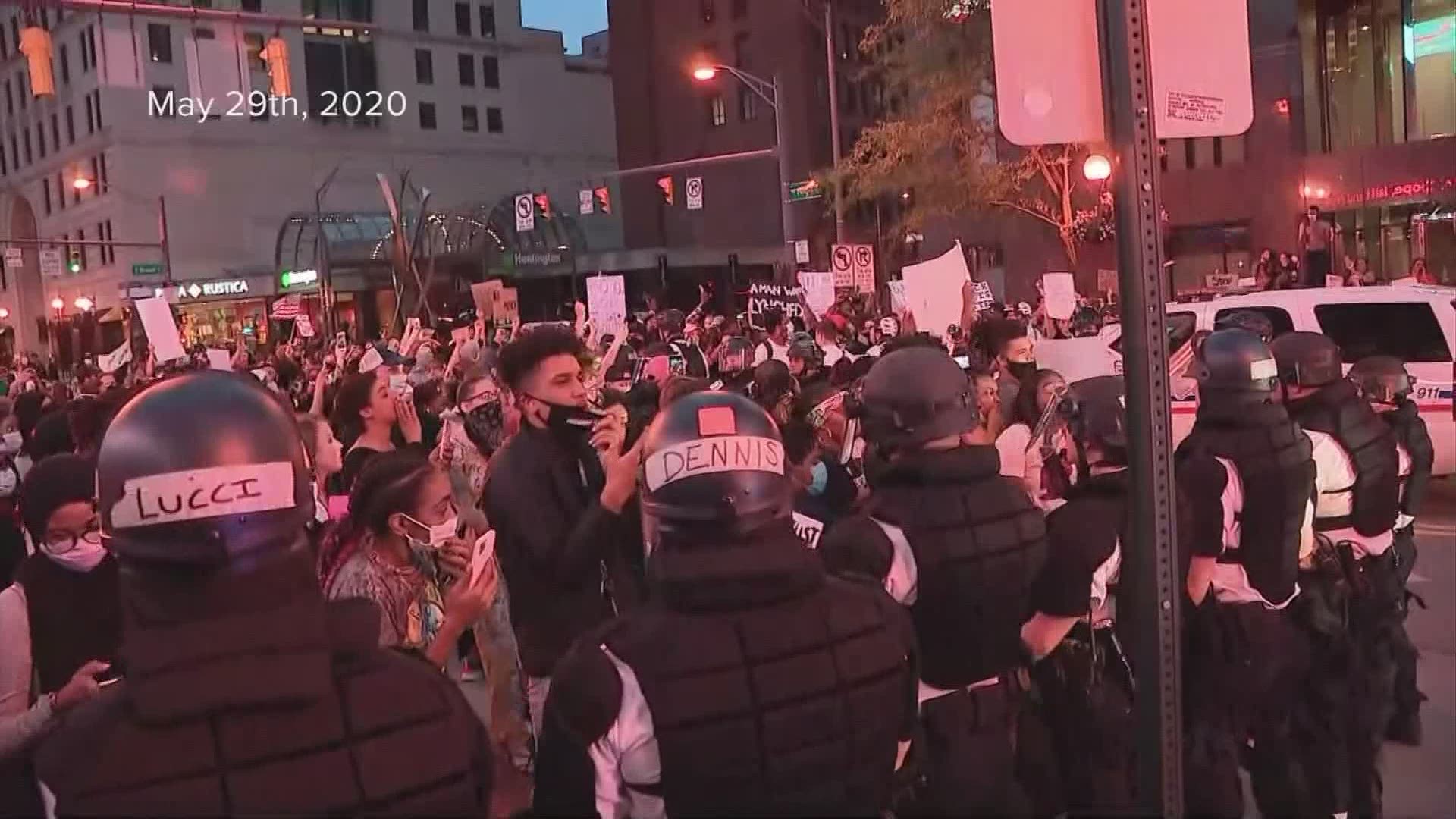COLUMBUS, Ohio — The authors of an investigative report detailed steps to improve how the City of Columbus and police respond to protests on Monday, citing a lack of communication during demonstrations last summer in response to the death of George Floyd.
Former U.S. Attorney for the Southern District of Ohio Carter Stewart and The Ohio State University John Glenn College of Public Affairs were chosen to lead the investigation into how the city and Columbus Division of Police managed protests spanning from May to July.
Their findings detail a lack of coordination between the city leaders and inconsistent communication between the Columbus Division of Police.
“We really have to endeavor to find those people that don’t want to talk to us,” said Frank Straub, director of the Center for Mass Violence Response Studies. “We have to give voice to their concerns.”
Straub suggested officers and city leaders work on a social media strategy going forward to better communicate with community members ahead of demonstrations.
The study noted distrust and anger among the community aimed at police following the protests.
“I firmly believe that it is our responsibility as leaders to hold ourselves accountable to the residents of Columbus,” City Attorney Zach Klein said.
Straub said the City and police must work on transparency about policies and procedures with the community going forward. That includes clearly detailing when officers can resort to chemical and lethal munitions.
Additionally, investigators noted a need for Columbus police to establish a special unit to directly work with activists to keep an open line of communication.
“The City must do better, and this detailed report gives tangible recommendations on ways to improve training, communications, use of force and operational practices to protect residents and officers,” City Council President Shannon G. Hardin said in response to the report’s findings.
“The way we do that is continuing to change the culture in the Division of Police, continue to add additional resources to training to the Division of Police so they are better able to meet and exceed the community's expectations for interactions,” said Columbus Mayor Andrew Ginther.
Also cited in the report was a "rift" between city leadership and police, as well as within CPD.
10TV asked Ginther if he takes ownership of that rift, to which he responded: "Absolutely. I think we all do. It's a natural tension. The chain of command has to understand that they report to the community ultimately. They get their power and authority from the people."
According to the report, there has not been division-wide training of large-scale protests since 2015, and that likely played a factor into the police division not being ready to handle the size and scope of the crowds during the protests last summer. Ginther has since promised funding for training.
“This is an opportunity for Columbus to be a national leader,” said Carter Stewart, former U.S. attorney for the Southern District.
Law firm Baker Hostetler was contracted by the city for a separate investigation into claims of misuse of force. As of September 2020, of the 36 total investigations into alleged police misconduct, only one complaint was sustained – which meant the officer did not act within police policy.
You can read the full report below.
Several city leaders have since responded to the report. You can read their responses below:
City Council President Shannon G. Hardin:
"This report helps Columbus protect residents' first amendment rights and physical safety, giving clear direction for changes to policy and practices in public safety and government oversight of police. It's no secret that the police response was heavy-handed during the protests of 2020, and Council is proud that we’ve already passed a package of reforms. The City must do better, and this detailed report gives tangible recommendations on ways to improve training, communications, use of force and operational practices to protect residents and officers. We all want safe, peaceful protests to be allowed in Ohio's capital."
City Attorney Zach Klein:
“I firmly believe that it is our responsibility as leaders to hold ourselves accountable to the residents of Columbus. This honest, objective assessment of where we have fallen short, as well as what we did correctly, is a tool for us to make real progress. I hope the independent research and recommendations can serve as an opportunity for us to continue to make necessary changes to our policing protocols and city responses to bring fairness and safety to all members of our community."

